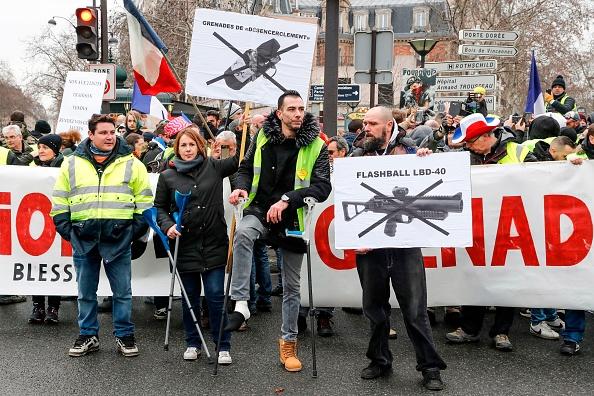PARIS—If social-media trends prove correct, “Act IV” of France’s so-called yellow vest movement—a reference to the fourth week of protests over fuel tax hikes planned for Dec. 8—will be the biggest yet.
Prime Minister Edouard Philippe said 89,000 police nationwide would be deployed, about 8,000 of which would be placed in Paris, where rioters torched cars and looted shops off the famed Champs Elysees boulevard, and defaced the Arc de Triomphe with graffiti directed at President Emmanuel Macron.





